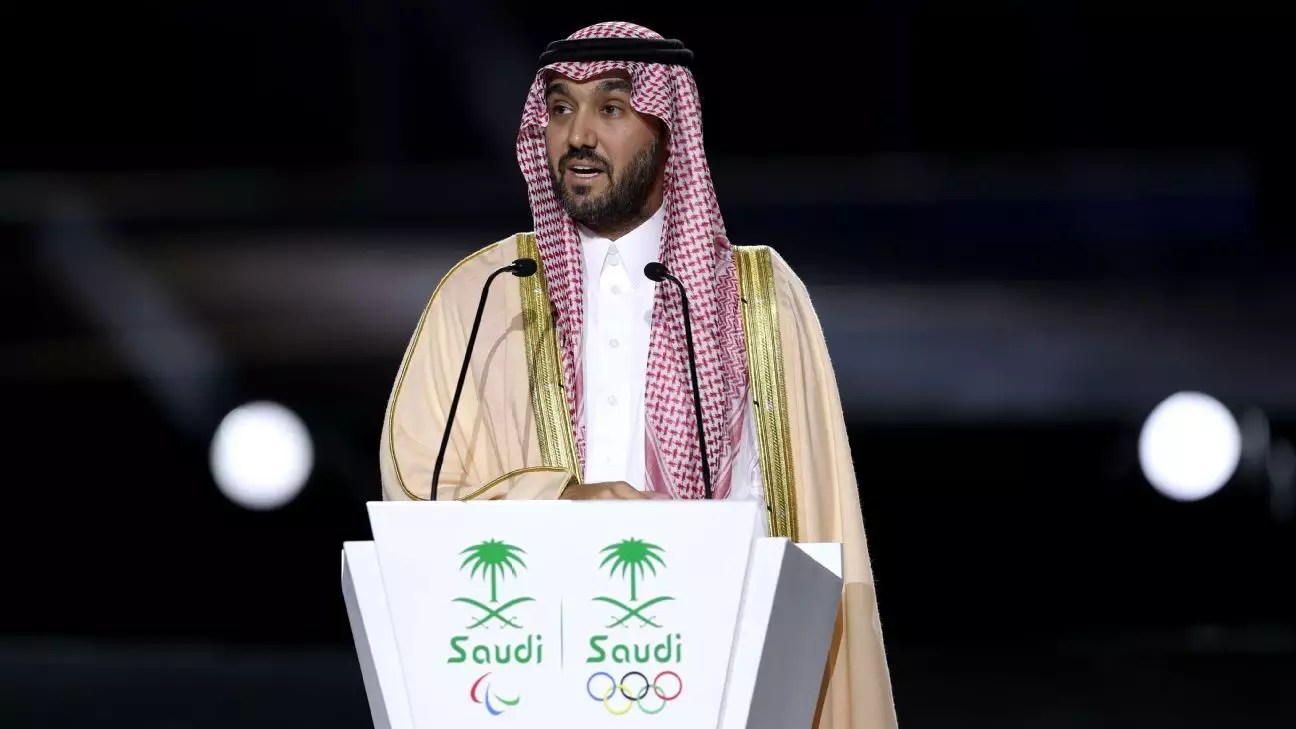As anticipation builds around Saudi Arabia’s hosting of the 2034 World Cup, an alarming crisis simmers beneath the surface. The recent tragic death of a migrant worker during the construction of Aramco Stadium has exposed the perilous realities faced by workers in the Kingdom’s burgeoning construction sector. This incident raises profound questions about workers’ rights and safety protocols, casting a shadow over the extravagant promises of an illustrious sports event. As the sport’s governing bodies align their interests with the prosperous oil-rich nation, it becomes imperative to scrutinize the ramifications this partnership may have on the fundamental rights of laborers.
The Price of Progress: Is Human Life Secondary?
The sporting spectacle that is the World Cup often elicits images of camaraderie and celebration. Yet, as Saudi Arabia gears up for the grand stage, the human cost behind this façade of progress is glaringly evident. It is one thing for officials like Prince Abdulaziz bin Turki Al-Faisal to declare a commitment to worker safety, but the tragic incident involving Muhammad Arshad reminds us that these assurances can ring hollow when juxtaposed with the stark realities on the ground. Despite the promises of investigations and stringent oversight, the question persists: how many lives must be sacrificed at the altar of infrastructural grandeur?
The statistics surrounding worker safety in regions such as Diriyah, where reportedly 35,000 workers labored without incident for 20 months, offer a misleading veneer of safety. Such anecdotes, while laudable, are not representative of the broader, deeply troubling trend affecting migrant workers. The international community has already voiced concerns about the enmeshment of mega-sporting events and systemic inequalities, and this incident only amplifies the calls for accountability in the face of exploitation.
The Disconnect Between Promises and Realities
FIFA President Gianni Infantino’s assurances that hosting the World Cup will serve as a “unique catalyst for positive social change” parallel the criticisms emerging from human rights advocates. These groups caution that the decision to host such a monumental event in Saudi Arabia could further exacerbate the vulnerabilities that migrant workers face. The comparisons drawn with Qatar’s troubled World Cup preparations serve as a cautionary tale that officials seem desperate to overlook. Despite claims of having “learned” from Qatar, the situation begs a deeper examination of whether meaningful change is possible when the basic rights of workers remain sidelined.
Furthermore, the opaque bidding process that led to Saudi Arabia being awarded the hosting rights raises eyebrows. With little transparency or competition, high-ranking officials effectively maneuvered to secure this opportunity for the Kingdom. The concerns regarding the welfare of migrant workers, however, cannot be brushed aside in favor of sports diplomacy. FIFA’s rush to validate the host country could be viewed as naïve at best—or, crucially, a tacit endorsement of a status quo that prioritizes profits over people.
A Call for Global Solidarity
Sustainability in sports requires more than a well-built stadium or well-promoted event; it demands a commitment to human dignity. As the world prepares to converge on Saudi Arabia for the 2034 World Cup, there is a pressing need for global solidarity in holding accountable those who perpetuate systems of exploitation. It’s vital that fans, players, and advocates unite to demand transparent systems that ensure the safety and rights of all workers.
Only by taking a united stand against inequities can we begin to shape a future where sports serve as a true vehicle for positive change. As conversations around safety and workers’ rights gather momentum both online and offline, it is essential that we amplify marginalized voices and urge for an unbiased examination of the implications tied to mega-sporting events in questionable contexts.
The time is now to transition from mere acknowledgment of issues to real, actionable steps toward ensuring that the values represented on the pitch—the values of teamwork, respect, and humanity—manifest off the field as well. In light of recent tragedies, the future of sports must not only aim for victory but also advocate fervently for the dignity and rights of every person involved in the journey.


Leave a Reply